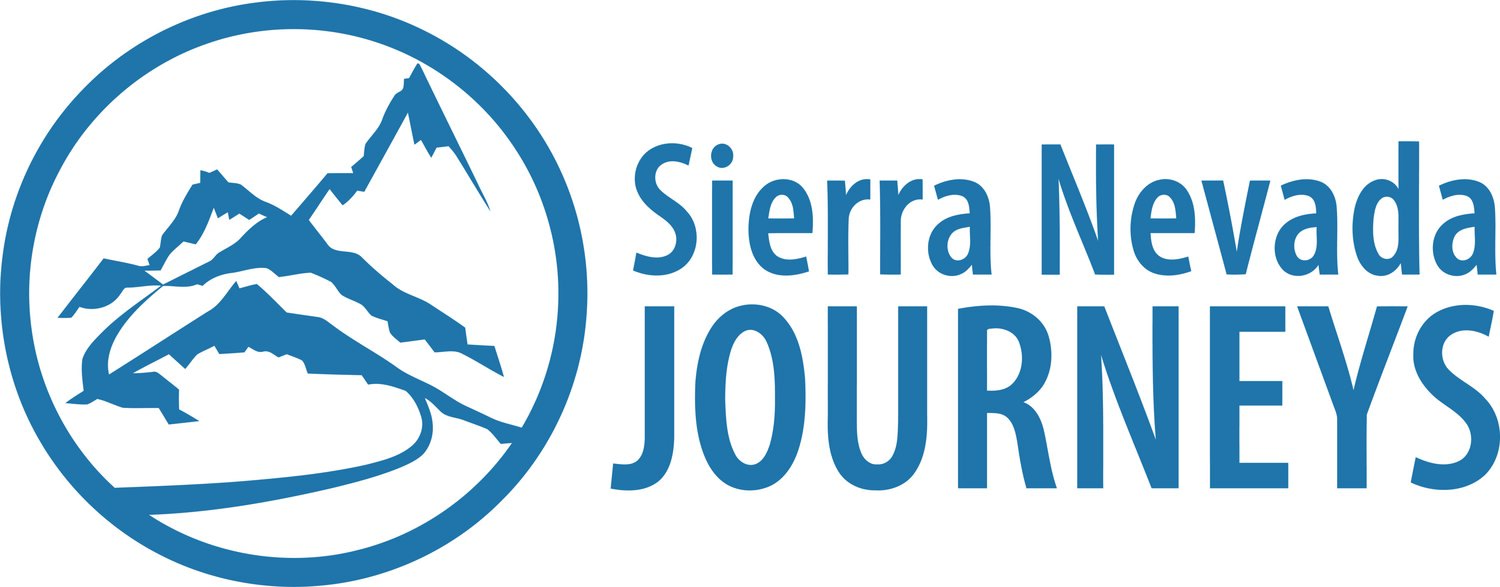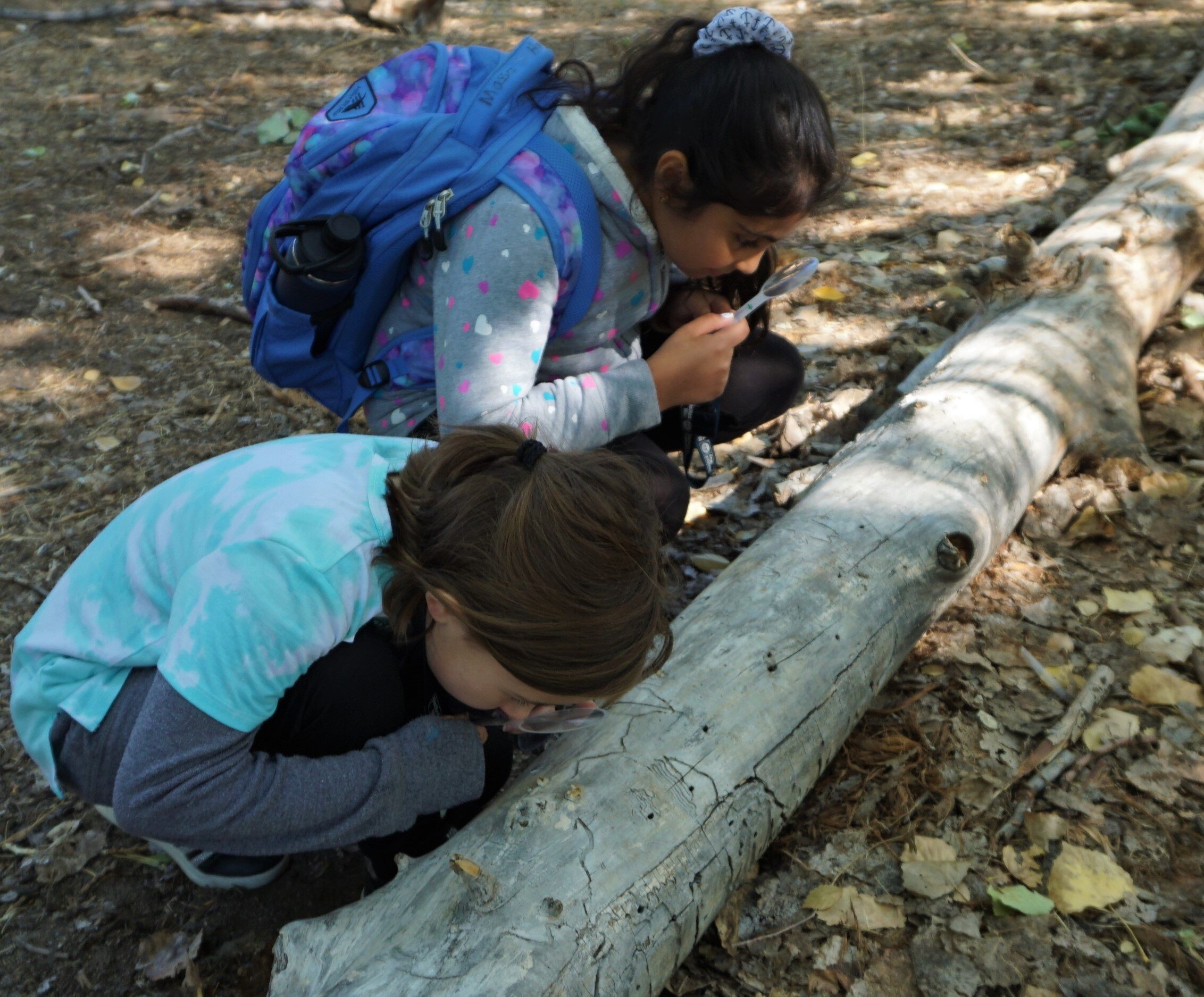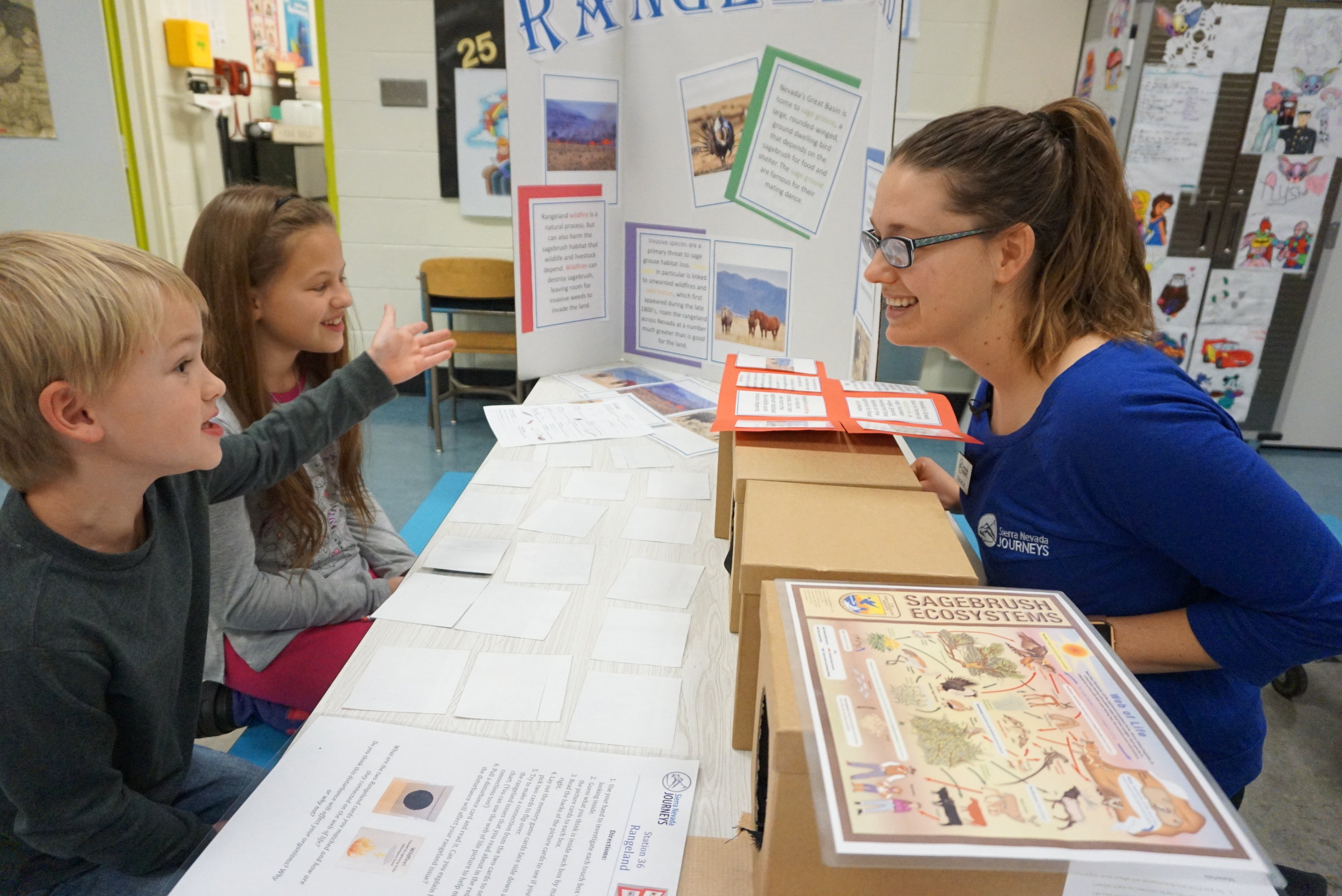The unique internship brings together a partnership between philanthropy, nonprofit and public education institution. The result: improved teaching techniques for future elementary education teachers and students in Northern Nevada.
Reno, Nev., March 15, 2021 – The Daugherty Science Internship (DSI) and Nevada Teach Scholars Program (NTS) provide hands-on STEM (science, technology, engineering, and math) teaching experience for teachers-in-training from the University of Nevada, Reno (UNR). These opportunities are supported by a partnership between Sierra Nevada Journeys, the University of Nevada, Reno Colleges of Education and Science, and the Sandra A. Daugherty Foundation.
"The DSI and NTS programs are an outstanding way to improve your teaching skills in a variety of settings," says Alyssa Wagner, the Reno program director at Sierra Nevada Journeys. "Because interns are able to practice in several schools while with Sierra Nevada Journeys, the experience increases familiarity and comfort teaching and planning with the Next Generation Science Standards (NGSS). It also provides networking opportunities within the informal education community, as well as with teachers and principals in Washoe County School District (among other local districts), and is an overall fun experience."
Bob Daugherty, MD, retired Dean at the University of Nevada School of Medicine plays a pivotal role in creating these invaluable opportunities for university students. As the husband of Sandra A. Daugherty, MD, PhD, the foundation in honor of his late wife, The Sandra A. Daugherty Foundation, is paving the way for increasing the skills and expertise of educators in Northern Nevada. “My family’s roots run deep in working hard and giving back to our community; it is a joy to mentor students and see the positive impacts they are making with the next generation of scientists, physicians and educators,” says Dr. Bob Daugherty.
Mariah Gustin is one of those recipients. Gustin recently graduated with a Master in Education from UNR. Last year, Gustin earned the Daugherty Science Internship and practiced her teaching skills at Sierra Nevada Journeys.
“As a lover and strong believer in the inquiry process, I was fascinated by the methods used by Sierra Nevada Journeys. One thing that was amazing was the Family STEM Nights. The community involvement and interest were inspiring. To see so many people in our community actively involved in science despite the political and social climate surrounding science made our mission seem that much more important,” says Gustin.
Another aspect of the teaching process that Gustin learned during her internship at Sierra Nevada Journeys was the 5E Instructional Model, an inquiry-based model of instruction, that includes five phases: engagement, exploration, explanation, extension, and evaluation.
“I used universal teaching strategies so all of the students were engaged and excited to learn and that can be hard! Having designed science lessons during my course work at UNR and seeing Full Option Science System (a research-based science curriculum for grades K-8 developed at the Lawrence Hall of Science, University of California, Berkeley) implemented by Sierra Nevada Journeys’ educators, I had lessons that were so beautifully designed,” added Gustin. “To see the learning happen with Sierra Nevada Journeys’ students in such a small period of time was pretty incredible.”
“I would absolutely recommend anyone lucky enough to be awarded the honor of participating in this program to take it. Science is fundamental to all learning. To be able to question, test, and be a critical consumer of information are important skills that are specifically taught throughout each lesson. And as climate change and other environmental issues increase, it is our job as educators to have the skills, confidence, and understanding needed to teach our students,” says Gustin. Her internship and hard work have paid off as Gustin is now teaching with the Washoe County School District.
If interested in applying for this internship, please email Alyssa Wagner at alyssaw@sierranevadajourneys.org.
About the Daugherty Science Internship:
Stipend interns will participate in a blended student teaching experience which includes seven weeks at a traditional school placement and seven weeks teaching science with Sierra Nevada Journeys, all to take place during students' teaching semester.
Interns observe and teach 20+ NGSS-based elementary science lessons and outdoor field science programs to a wide range of students across 1st-6th grades under the direct supervision of Sierra Nevada Journeys director of education and College of Education mentors.
The DSI includes two weeks of training on science instruction with Sierra Nevada Journeys.
About the Nevada Teach Scholars:
Build your skills as an educator in this fun, paid role that includes 28 days (through 14 weeks) teaching hands-on and outdoor science with Sierra Nevada Journeys.
Observe and teach 20+ Next Generation Science Standards-based elementary science lessons and outdoor field science programs to a wide range of students across 1st through 6th grades under the direct supervision of Sierra Nevada Journeys’ Program Director.
Build highly sought-after science instruction skills and earn a $1,500 stipend.
Have the unique opportunity to teach not only in the classroom, but in the outdoor setting as a part of Sierra Nevada Journeys’ field studies.
Help classroom teachers in our region deliver outstanding science content to students in high-need schools.










